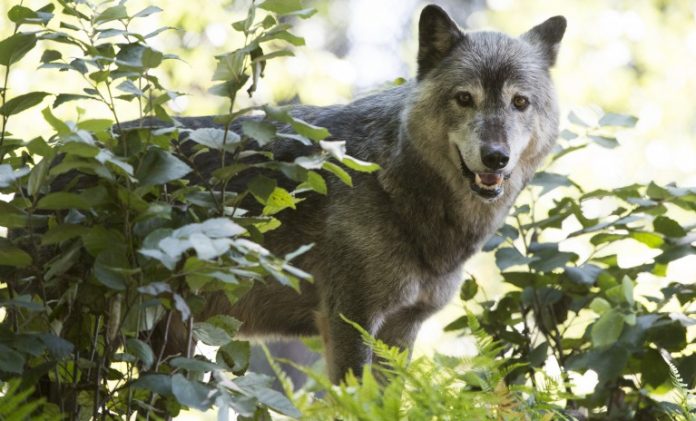why do wolves howl? Over the years, wildlife researchers have speculated that wolf howling may a way to get in touch with lost companions because it is easy to get lost during hunting. However, observers of captive wolves have discovered that the howling pattern is related to the size of the wolf pack and whether the head wolf is present or not. Perhaps wolf howling is not a simple automatic response.
Friederike Range
Friederike Range is a cognitive behaviorist at the Vienna University of Veterinary Medicine. She and her colleagues have raised nine wolves at the Ernstbrunn Wolf Science Institute since 2008. The wolves in the research institute do not hunt, but they howl on many different occasions. “When the little wolves were 6 weeks old, we took them out for a walk. Whenever we took one out, the rest immediately started to bark,” she said, “so we wanted to know why they howled.”
Captive wolves do not have natural families like wild wolves, so they form a hierarchical wolf pack. Each wolf has a “preferred mate”-playing together, grooming each other, and sleeping close to each other. For several weeks, the researchers took each wolf out for a walk, a total of 3 times, each for 45 minutes.
Each walk chose randomly, and the wolf cannot predict where it will be next and go out. In almost every experiment, the pack began to howl less than 20 minutes after a wolf had left. But the one who went for a walk would not respond in most cases. After recording the specific shouts of each wolf, the researchers found that the wolf screamed the most when it left, and when a wolf’s mate left, it also screamed more. Ranjit believes that howling wolves is not simply coaxing other wolves but reflects the social relationship between wolves.
Could it be the anxiety that triggered the howl?

Researchers collected saliva from wolves, measure the concentration of corticosteroids, and found that anxiety stress is not always associate with howling. The corticosteroid concentration rises rapidly when the wolf leaves, but this is not the case when the spouse leaves. Although they will continue to howl, they do not stress. In other words, wolf howling is not a conditioned reflex-like Pavlov’s dog but an active behavior influenced by social factors. “Howling is planned, not a brainless impulse,” Ranjit said. “They are trying to contact the wolves that are important to them and get the wolves together again.”
Dave Mech: why do wolves howl
Dave Mech, a wolf biologist at the University of Minnesota, said, “This paper provides the first experimental evidence… that the main reason for howling wolves is indeed gathering wolves after hunting.” This view was put forward by him in 1966 when he tracked the hunting actions of 15 wolves. The wolves already scatter when the hunt was over, but they gathered again after the howling.
However, John Theberge, who studies wild wolf populations at the University of Waterloo. Points out that extrapolating from captive to wild animals is dangerous. Wild wolves can silently track the scent trails left by other wolves. So howling in the wild can take on different responsibilities. He also pointed out that other hormones may have nothing to do with the stress that affects howling. There is still much to found about why the wolf howls.
Also Read: What is marzipan

